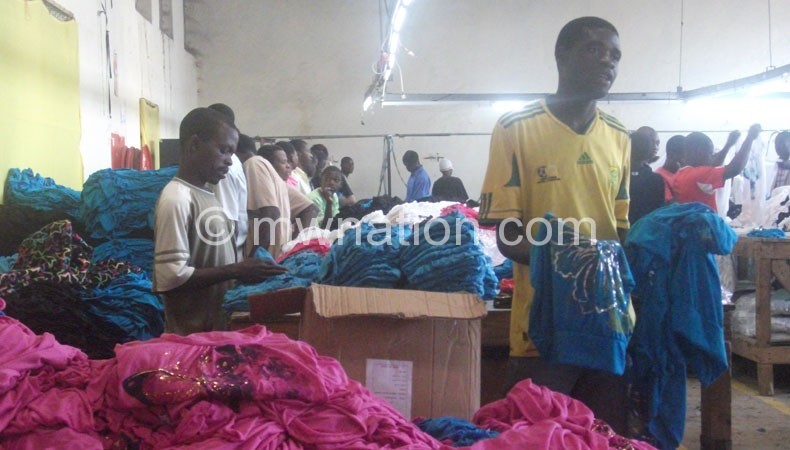Experts warn Malawi on Chinese trade dependency
Trade analysts have warned African countries, including Malawi against depending too much on trade with China, noting that the slowing down of the country’s economic growth would have a ripple effect on these economies.
Malawi, according to available statistics, has experienced a jump in trade with China with exports to Beijing rising by about 400 percent between 2008 and 2013.

Tobacco, cotton, tea, vegetables and leather are dominating, according to reports.
But a bulletin on developing countries and the slowdown in China written by Judith Tyson, Jane Kennan and Zhenbo Hou has noted that economic growth in China has brought significant benefits to poor economies through growth in exports and foreign direct investment (FDI) from China. However, the Chinese economy has been slowing, said the bulletin.
The bulletin shows that in 2013, Malawi exported 5.6 percent of its total exports to China while about 0.23 percent of Lilongwe’s total FDI came from Asian economy.
The bulletin, however, notes that although developing countries are likely to experience negative effects of slowdown in China because of their export dependency, restructuring their export, longer-term structural changes in China offer opportunities for them to renew growth.
Analysts often argue that due to standards and transportation costs, intra-regional trade makes more economic sense to Malawi and encouraged the removal of non tariff barriers among regional members for seamless trade.
National Working Group on Trade Policy chairperson Geoff Mkandawire said there are negatives and positives in either trading regionally or with economies outside Malawi.
He said although overseas markets are lucrative, traders certainly face bigger logistical problems in terms of transportation costs and time, while agricultural products may even face barriers such as heavy subsidies in Europe or other lucrative markets.
In the five-year National Export Strategy (NES) launched in 2012, Malawi seeks to move towards regional markets and apparently do away with extra-African markets.
Under the strategy, Malawi will generally focus on regional exports, particularly in Southern Africa Development Community (Sadc), Common Market for Eastern and Southern Africa (Comesa), East African Community (EAC) and the upcoming Tripartite Free Trade Area (TFTA) as opposed to focusing excessively on extra-African markets and benefiting from Malawi’s geographical access to fast-growing neighbouring economies





